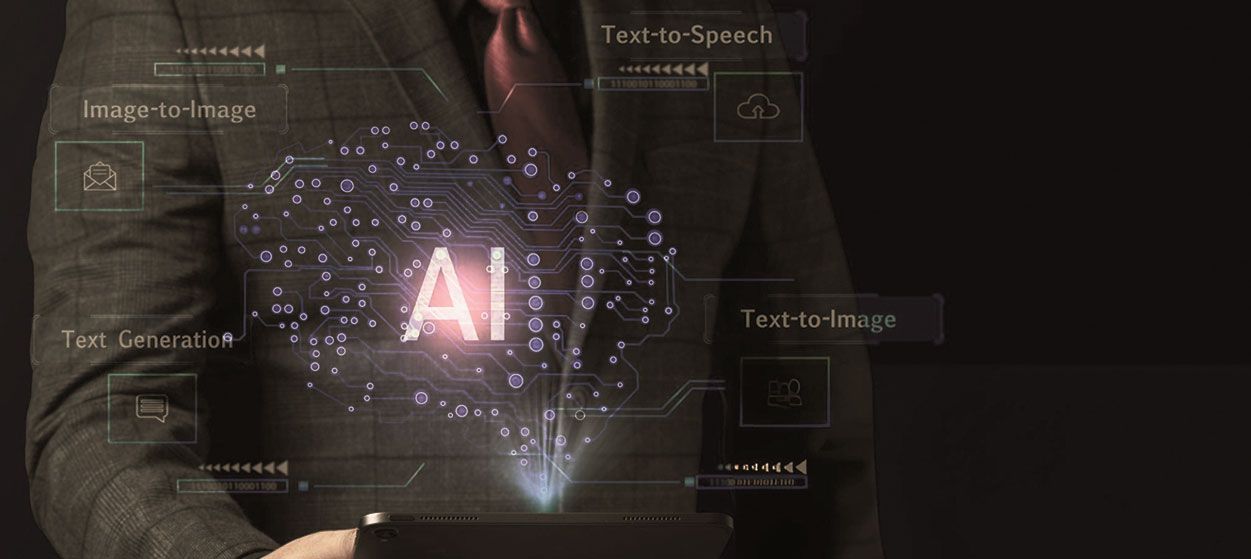
Jul 10, 2024

By now, we can safely say that most of us have heard the name “ChatGPT”. It has captured our imaginations with its ability to generate human-like text, translate languages, and more. Enterprises across industries are recognizing the potential of large language models (LLMs) like ChatGPT and Gemini to revolutionize various aspects of their operations. But these potent AI systems are not without their drawbacks. The costs of implementation, the complexity of managing vast datasets, and the need for specialized expertise can be significant hurdles for businesses. In some cases, the broad capabilities of LLMs might be overkill for specific tasks, leading to a search for more focused and efficient solutions. This is where the idea of micro LLMs comes into play, providing a customized solution to these issues and opening up new opportunities for AI applications.
The Need for a tailored approach
Large language models (LLMs) have a huge amount of information, say like an encyclopedia. However, because they are so general, they may not be able to handle unique, complex problems. It’s like trying to fix your car’s engine with a Swiss Army knife: it contains numerous tools, but none are properly suited for the job at hand. Much the same way, a general-purpose LLM may have some knowledge about a particular field, but it lacks the in-depth expertise and depth of knowledge required for specialized applications.
What we need is an LLM that is a master of one trade, not a jack of all. Think of a world-class chef specializing in French cuisine. They may not know how to cook every dish in the world, but their expertise in French culinary techniques and ingredients is unparalleled. Likewise, a specially trained LLM built for a specific domain, such as finance or law, can outperform a generalist LLM in tasks that require deep knowledge and understanding of that particular field. By narrowing the scope, these models can be trained more efficiently and produce more accurate and relevant results.
The healthcare industry is one example. The high stakes of decision-making, the complexity of the medical domain, and the sensitive nature of patient data necessitate an AI solution that is not only powerful but also tailored to the medical industry’s specific requirements. Micro LLMs provide a more streamlined and effective solution with their flexibility and focused training on medical data. This focused approach not only optimizes performance but also reduces the computational resources required, making it a more accessible and cost-effective option for healthcare organizations.
The Potential of Micro LLMs in Healthcare
The healthcare industry’s unique challenges with sensitive data and complex terminology demand a more focused AI solution, making micro LLMs a promising alternative to their larger counterparts.
Micro LLMs: Tailored AI for Healthcare
Micro LLMs are smaller, specialized versions of large language models (LLMs), designed to excel at specific tasks within a particular domain. Unlike their larger counterparts, which are trained on massive amounts of general text data, micro LLMs are focused on a narrower set of information, such as medical terminology, clinical guidelines, and patient records.
Key Differences from Full-Scale LLMs
| Feature | Micro LLMs | Full Scale LLMs |
|---|---|---|
| Size | Smaller, requiring less computational resources | Larger, demanding significant resources |
| Customization | Highly customizable to specific tasks and data | Less adaptable to specific domains |
| Cost | More affordable to train and deploy | Expensive to train and maintain |
| Training Data | Focused on domain-specific data (e.g., medical) | Trained on massive amounts of general text |
| Response Time | Typically faster due to smaller size | Can be slower due to complexity |
How Micro LLMs Overcome Healthcare AI Hurdles?
Micro LLMs: Transforming Healthcare, One Task at a Time
While the healthcare industry constantly struggles with complex challenges, micro LLMs are emerging as a practical and impactful tool for driving tangible improvements. By tailoring AI to specific healthcare tasks, these models are streamlining workflows, enhancing patient experiences, and accelerating research efforts.
Easing Physician Burnout
One of the most pressing issues facing healthcare providers is physician burnout, often fueled by the administrative burden of documenting patient encounters. Micro LLMs can alleviate this burden by automatically summarizing patient notes, extracting key clinical information, and generating concise reports. This automation not only reduces administrative costs by streamlining documentation but also improves physician satisfaction by freeing up valuable time for direct patient interaction. As a result, physicians can deliver more personalized and effective care, potentially enhancing patient outcomes.
Smarter Patient Interaction
Micro LLMs can change how patients interact with the healthcare system. By powering intelligent chatbots and virtual assistants, these models can provide accurate and timely information to patients, answer questions about medications or conditions, and even guide them through self-triage processes. This can result in:
Accelerating Insights
Micro LLMs can analyze vast amounts of medical literature, clinical trial data, and patient records to extract valuable insights. By identifying patterns, correlations, and potential risks, these models can support clinical decision-making, personalize treatment plans, and even contribute to drug discovery efforts. This accelerated knowledge generation can lead to:
Your Roadmap to Micro LLMs: A Step-by-Step Guide
Integrating micro LLMs into your healthcare organization can be a game-changer, but it’s essential to approach it strategically. Here’s a roadmap to guide your journey:
Assess Your Needs and Priorities
Identify the most pressing challenges or areas for improvement within your organization. Are you looking to streamline administrative tasks, enhance patient communication, or accelerate research efforts?
Evaluate your existing data infrastructure. Do you have access to the necessary data (electronic health records, patient feedback, etc.) to train and fine-tune a micro LLM effectively? Is your data organized, labeled and high quality?
Define Your Micro LLM Strategy
Determine the specific use cases where a micro LLM could make the most significant impact. Prioritize areas that align with your strategic goals and where you can measure tangible outcomes, such as:
Develop a clear implementation plan, outlining the timeline, resources, and milestones for your micro LLM project. Consider factors like budget, staffing, and technology infrastructure.
Build Your Micro LLM Team
Assess your in-house expertise in AI and natural language processing. Do you have the skills to develop and deploy micro LLMs internally?
If not, explore partnerships with AI vendors or consultants who demonstrate a strong understanding of both AI and the healthcare domain. Look for partners with:
Even if a vendor hasn’t extensively deployed micro LLMs in healthcare, their broader expertise in AI and understanding of the healthcare domain can be invaluable. Prioritize those who demonstrate a strong technical foundation in AI, a willingness to customize solutions, and a commitment to ethical AI principles in the healthcare context. Together, you can co-create innovative micro LLM solutions that address your organization’s specific needs and advance the field of AI in healthcare.
Pilot and Iterate
Start with a small-scale pilot project to test the feasibility and effectiveness of your chosen micro LLM solution. Gather feedback from end-users (physicians, nurses, patients) to identify areas for improvement.
Iterate your model based on pilot results. Refine the training data, adjust the model’s parameters, and explore additional use cases as needed.
Monitor the performance and impact of your micro LLM solution continuously. Track key metrics and adjust your strategy as you learn more about the model’s strengths and weaknesses.
By following this roadmap, you can ensure that your micro LLM initiative is not only successful but also sustainable in the long run. Remember, the journey with micro LLMs is an ongoing one, requiring continuous learning, adaptation, and a commitment to ethical AI practices.